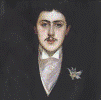Modern Languages and Literatures, Department of

French Language and Literature Papers
Document Type
Article
Date of this Version
October 1996
Abstract
Study of the relationship between science and La Fontaine's Fables has a limited, but thought-provoking past. Beverly Ridgely asserts that while La Fontaine represents himself mainly as an "artist" and "moralist" concerned with depicting the irony and comedy of life, he "also had a genuinely studious and reflective side... [with] a real aspiration to write scientific philosophical verse in emulation of such ancient masters as Lucretius and Virgil" (180). Ridgely analyzes the influence of late seventeenth-century cosmic theory on L'astrologue qui se laisse tomber dans un puits and L'horoscope. The two poems attack the concept of judicial astrology, which claimed to foretell the future through observation of the heavens. La Fontaine's complaint against judicial astrology, according to Ridgely, was that it constituted a "pseudo-science in which... [the poet] saw both an infringement on Divine Providence and an affront to common sense and experience—in short a striking instance of human presumption and folly" (182). My aim is to prove that La Fontaine, in his Discours a Madame de La Sabliere, accuses Descartes of the same presumption, and affront to common sense.
In the fables mentioned, La Fontaine bases his critique of both questionable and legitimate scientific theory on the works of Gassendi as summarized in Francois Bernier's Abrege de la philosophic de Gassendi (1678). Gassendi contends that any form of absolute knowledge is impossible. According to Richard Popkin, Gassendi argues that "the world of experience or appearance... [serves] as the sole basis for our natural knowledge" (101). Gassendi's relativism, then, contradicts Descartes's theories of certitude based on scientific reasoning and the existence of God. Ridgely, while discussing the influence of "gassendisme" on the Discours a Madame de La Sabliere, briefly focuses on the central argument in the poem: that animals exercise some measure of thought and will and therefore do not, contrary to Descartes, comprise simple "machines." By mentioning the issue of "l'ame des betes," Ridgely evokes the debate sparked by Rene Jasinski and Henri Busson in the 1930s over the origins of La Fontaine's views of the animal mind and soul. In general, Jasinski argues for the influence of Gassendi and Bernier, while Busson, and later Ferdinand Gohin, assert that La Fontaine's beliefs about animal intelligence stemmed from the Jesuit Gaston Pardies's Discours de la connaissance des Bestes, as well as the writings of J.-B. Du Hamel. Although a valuable source study of one of La Fontaine's most noted poems, the Jasinski-Busson debate raises and answers few questions.
The goal of this study is not to uncover additional works that La Fontaine may have consulted while formulating his theory of animal intelligence. Rather, I will examine further the poet's treatment of Cartesianism in the Discours a Madame de La Sabliere. La Fontaine's anti-Cartesianism extends far beyond disagreement over the nature of the animal mind. Specifically, his refutation of Descartes involves style, method, and structure, as much as theme. In effect, the Discours a Madame de La Sabliere can be read as a refutation to the Discours de la methode in which La Fontaine purposely employs Cartesian procedure, language, and narrative point of view to undercut concepts fundamental to the geometer's argument.


Comments
Published in Refiguring La Fontaine: Tercentenary Essays, edited by Anne L. Birberick. EMF Monographs, 1996. Copyright 1996 Rookwood Press, Inc. Used by permission.